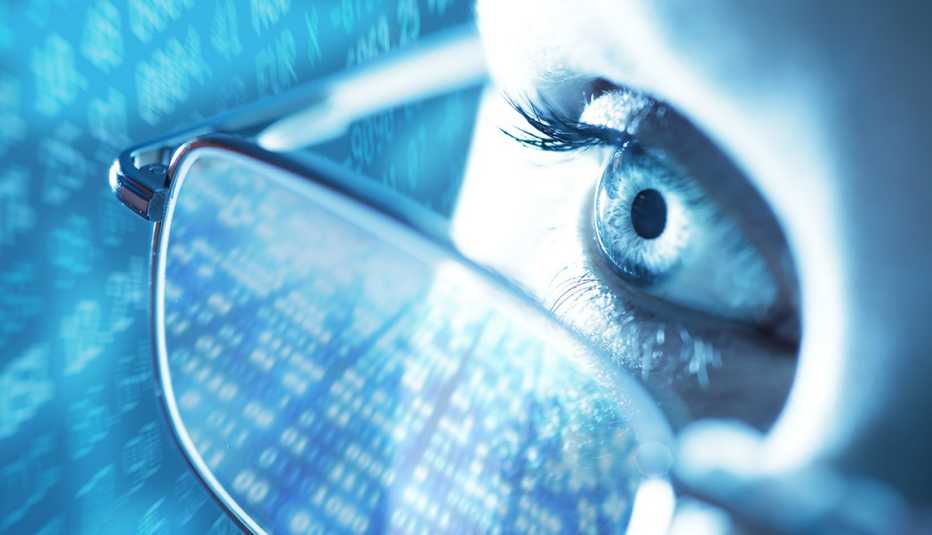AARP Hearing Center


As the COVID-19 pandemic has driven many of us online for work, meetings and even socializing, sales of computer "blue light" glasses are on the rise. But what do these glasses really do? Are they worth buying?
Short answer: probably not. Most computer glasses are designed to filter out blue light — high-energy light rays emitted from the display screens on your computer, tablet and phone. Manufacturers of computer glasses claim that too much exposure to blue light can lead to dry eyes, blurred vision, eye fatigue, headache and other symptoms of digital eyestrain.
While it's true that hours spent staring at your screens can cause all those problems, the blue light isn't to blame, says Anne L. Coleman, M.D., professor of ophthalmology at the University of California, Los Angeles.
"The literature shows there is no evidence of any harm from blue light to the eyes,” Coleman says, “and there’s no evidence that shows blue-blocking lenses or filters make any difference at all."
Indeed, a 2021 study published in the American Journal of Ophthalmology found that blue-blocking filters were no more effective in reducing digital eyestrain than neutral light filters that don't block out blue light. And a Cochrane Library review of studies published in August also didn’t find evidence that blue light filtering glasses reduced eyestrain from computer use. So what is to blame for your tired, bleary eyes? Blinking. Or more specifically, not blinking when you're staring at your screens, Coleman says.
"When you're at the computer, you're focusing, and research shows that your blinking frequency decreases,” she says. “Under normal circumstances, we blink about 15 times a minute, but we blink half of that to one-third of that amount when using digital devices. That's hard on your eyes.”
So instead of buying a special pair of glasses you don't need, follow these six steps:
1. Apply the 20/20/20 rule
You can avoid digital eyestrain by simply giving your eyes a break at regular intervals, Coleman says. “In ophthalmology, we have a rule for computer time that every 20 minutes you should look at something about 20 feet away for 20 seconds. Now it can be hard to remember to do that, but even if you give your eyes a break once or twice an hour, it can really help,” she says.
2. Lubricate your eyes
As we get older, our tear production declines and increases our risk for dry eyes. Blinking less frequently while using the computer exacerbates the problem, says Miami ophthalmologist Timothy G. Murray, M.D. “As your cornea becomes less lubricated, things become blurry, your eyes feel gritty, and your eyelids may droop a little bit as they try to protect against the dryness. You can avoid this by using artificial-tear eye drops to lubricate your eyes.”
If you find yourself needing to use drops more than four times a day, the American Academy of Ophthalmology AAO recommends buying preservative-free drops, as many people find the preservatives can irritate their eyes.





































































More on Eye Health
4 Types of Eye Drops and How to Use Them Safely
These can help with dryness, redness, allergies and irritation
6 Best Vitamins for Eye Health
Find out which nutrients are essential for protecting vision
Is Caffeine Good or Bad For Your Eyes?
How your morning (and afternoon) cups of coffee affect five eye conditions